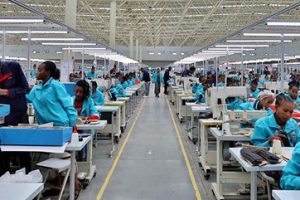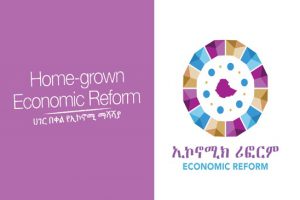The second Belt & Road Forum for International Cooperation (BRF) was successfully convened in Beijing from April 25th to 27th, 2019. Heads of state and government from 37 countries, over 6,000 foreign guests from more than 150 countries and 90 international organizations participated in the BRF. H.E. Prime Minister Dr. Abiy Ahmed attended this forum, and met with Chinese leaders, promoting further development of ChinaEthiopia cooperation.
The Leaders of the second BRF adopted Joint Communique agreeing to set the goal of jointly promoting high-quality Belt and Road cooperation as the direction based on the principles of extensive consultation, joint contribution and shared benefits, pursuing for open, green and clean cooperation, and sticking to highstandard, people-centered and sustainable development. Among all the conclusions, there are some highlights on Belt and Road Initiative (BRI) for future cooperation.
First, to continue to deepen integration of development plans and policies. China stands ready to synergize the BRI with the UN 2030 Agenda for Sustainable Development, AU Agenda 2063 and Ethiopia’s Vision 2025, giving priority to poverty alleviation, job creation and livelihood improvement. We will maintain zero tolerance on corruption. Second, to actively promote a global partnership of connectivity, strive to elevate the connectivity of infrastructure, improve and upgrade the economic corridors.
Third, to urge enterprises to ensure the economic, social, fiscal and environmental sustainability when doing business and make the BRI an initiative of innovation that is clean and green. Last but not least, to enhance multi-layered cooperation framework, be it bilateral, trilateral and multilateral cooperation platforms to advance and complement North-South and South-South cooperation. Apart from these principles and objectives, this big gathering has achieved substantial and practical outcomes to reflect mutual benefit and win-win results.
The Joint Communique of the Leaders’ Roundtable was unanimously endorsed by participating parties. As the host country, the Chinese side has put together a list of 283 concrete deliverables, including bilateralcooperative action plans to advance BRI between China and Ethiopia; trilateral Cooperation Agreement on Renewable Energy in Ethiopia with the United Nations Development Programme; the launch of the BRI International Green Development Coalition with the environmental departments of Ethiopia; joint establishment of the International Alliance of Museums of the Silk Road (IAMS) and the Framework Agreement on IAMS Exhibition Cooperation with the participation of Ethiopia; pilot BRI Sustainable Investment Facility Project to be jointly conducted by China and UNDP in Ethiopia, to name a few.
Today’s world is undergoing major changes unseen in the past century. The economic globalization suffers setbacks; world economic growth remains sluggish; protectionism and unilateralism are on the rise, new reforms in the global economic landscape and global governance system are underway. The Belt & Road Initiative was proposed by President Xi Jinping of the People’s Republic of China in 2013, aiming to boost international cooperation by promoting connectivity. Over the past six years, the trade volume between China and countries joining the BRI has surpassed US$6 trillion, with more than US$90 billionof Chinese investment in those countries.
The 82 overseas cooperative industrial parks jointly built by China and the participating countries have created nearly 300,000 jobs and brought more than US$2 billion in tax revenue for participating countries. The BRI has yielded significant opportunities and fruitful results to the world, making itself an international cooperative platform with the most extensive participation and the most popular global public good. China and Ethiopia have been enjoying friendly brotherhood and Comprehensive Strategic Cooperation Partnership.
China has participated on various “Firsts” projects in Ethiopia, such as the first industrial park, the first wind power plant, the first express toll way, the first urban light-rail, the first modernized and electrified trans-national railway, and the highest building. China continues to be the largest trading partner and the biggest source country of foreign direct investment.
The BRI is a Chinese approach to meet our common challenges. Prime Minister Dr. Abiy’s participation in the second BRF has undoubtedly enhanced Ethiopia-China cooperation on all sectors. The two sides had an in-depth exchange of views on global, regional situations as well as bilateral relations and reached broad consensus. The Prime Minister highlighted that development is the top-priority for developing countries and the all-round connectivity would help remove hurdles and bottlenecks and was key in promoting development, expressed his appreciation on the principles and the “five priority areas” of BRI.
Today, Ethiopia is undergoing profound changes, pushing sweeping reforms with a great vision, committed to safeguarding stability, developing the economy and improving the livelihood of people. China-Ethiopia cooperation on the BRI has embarked on a new journey as well. As President Xi Jinping stated in his keynote speech at the opening ceremony of the Second BRF: “A more open China will further integrate itself into the world and deliver greater progress and prosperity for both China and the world at large.” It is our unswerving belief that by making optimal use of the driving forces of BRI and FOCAC, China-Ethiopia relations will be further boosted.
The Ethiopian Herald Sunday Edition, May19/ 2019





